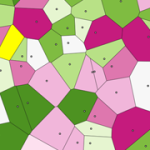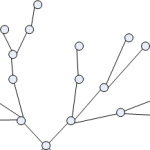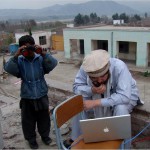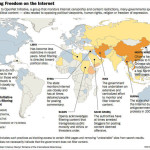Mois : septembre 2011 (Page 8 of 9)
(via d3.js)
Most people would say ‘we’re the users, and the product is advertising’,” he said. “But in fact the advertisers are the users and you are the product.
Et si Google décidait de mettre les 17 000 brevets de Motorola sous une licence libre qui autorise quiconque à utiliser ces technologies… à condition de ne plus poursuivre en justice les industriels qui utilisent Android pour équiper leurs tablettes et téléphone mobile ? Une idée folle… ou peut-être pas.
As recent events in Tunisia, Egypt, and Libya have illustrated (and Myanmar demonstrated several years prior), democratic activists around the globe need a secure and reliable platform to ensure their communications cannot be controlled or cut off by authoritarian regimes. To date, technologies meant to circumvent blocked communications have focused predominantly on developing services that run over preexisting communication infrastructures. Although these applications are important, they still require the use of a wireline or wireless network that is prone to monitoring or can be completely shut down by central authorities. Moreover, many of these technologies do not interface well with each other, limiting the ability of activists and the general public to adopt sophisticated circumvention technologies.
With support from New America Foundation’s Open Technology Initiative (OTI), Chambana.net, and Acorn Active Media the developers, technavists, and organizers here propose to build a new type of tool for democratic organizing: an open source “device-as-infrastructure” distributed communications platform that integrates users’ existing cell phones, WiFi-enabled computers, and other WiFi-capable personal devices to create a metro-scale peer-to-peer (mesh) communications network.
He read their emails, watched them through webcams without their knowledge and most damaging was his discovery of nude photos they had taken of themselves. Mijangos then threatened to post the images online unless his victims were willing to provide more racy photos or videos to him or if they went to police, according to court documents. He also posed as some of the victims’ boyfriends to convince them to send him nude pictures.
La police a utilisé en France des méthodes illégales. Selon la loi du 4 janvier 2010, aucune autorité ne peut « porter atteinte au secret des sources », sauf dans un seul cas : un juge peut décider de le faire si un « impératif prépondérant d’intérêt public » le justifie.




